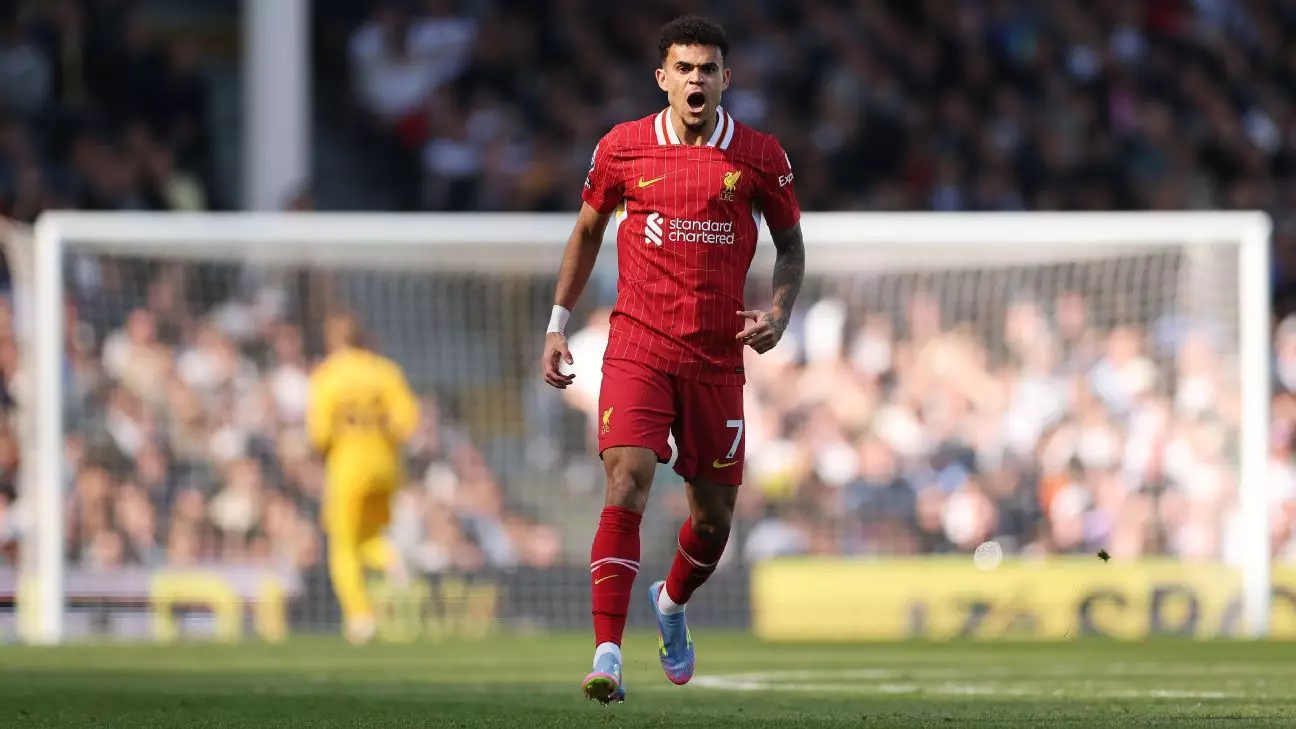The summer transfer window is often a whirlwind of activity, and this year is no exception, especially for FC Barcelona. Their pursuit of Liverpool’s talented winger, Luis Díaz, appears to be increasingly complicated due to the potential interest from the Saudi Pro League. This growing financial powerhouse is aggressively setting its sights on European talent, and players like Díaz, who boasts exceptional skills, are understandably on their radar. The financial allure of Saudi clubs may overshadow Barcelona’s more modest financial ambitions and historical allure.
Barcelona attempted to capture Díaz last year but failed to cement a deal, leaving them in a precarious position. With the player’s entourage reportedly in discussions with various clubs, including a burgeoning interest from the Gulf region, the worry is palpable within Barcelona’s camp. Should they fail to secure Díaz, the ramifications could be substantial, underscoring the need for European clubs to adjust their strategies in an increasingly competitive market.
Napoli’s Ambitious Plans for Young Talents
Over in Italy, Napoli is making headlines with their determination to enhance their squad through the acquisition of promising young players. The Serie A giants have set their sights on Manchester United’s Alejandro Garnacho, a player praised for his electrifying pace and technical prowess. Napoli’s attempts to sign Garnacho last January fell through, but they are clearly undeterred, positioning themselves to make a stronger bid in the upcoming transfer window.
Additionally, the Italian club is monitoring Shakhtar Donetsk’s Georgiy Sudakov closely. This dual focus reflects Napoli’s strategy of blending youth with experience, seeking those who can not only contribute immediately but also develop into stars. In a football climate that increasingly privileges up-and-coming talent, Napoli’s focus on young players like Garnacho and Sudakov could provide them with a significant competitive edge.
Interest in Defensive Reinforcements
Defensive stability is paramount for any club aiming for success, and both AS Roma and Napoli are keenly interested in Bologna center-back Jhon Lucumí. The 26-year-old Colombian is drawing attention across multiple clubs, not just within Serie A, but from European competitors as well. His versatile defending style and ability to adapt are key traits that have caught the eyes of various scouts.
With a contract lasting until 2026, securing a player of Lucumí’s caliber will not be easy, but both clubs demonstrate tenacity in their approach to fortifying their back lines. The market’s volatility means that being proactive is essential, especially as clubs seek to out-manage their rivals in both immediate and future squad-building efforts.
Continued American Expansion in MLS
Meanwhile, across the Atlantic, Major League Soccer (MLS) is cementing its reputation as a destination for international talents, as seen in Real Salt Lake’s negotiations to secure Boavista forward Róbert Bozeník. This potential acquisition reflects a broader trend of American clubs not only investing in tangible assets but also aiming to increase their competitiveness on the international stage. By pursuing players who can significantly impact their play, MLS franchises are actively reshaping their identities within the global football narrative.
Bozeník’s targeted arrival shows that Real Salt Lake is committed to enhancing their attacking options, setting a precedent that other clubs in the MLS are likely to emulate. As the league’s growing profile attracts players that enhance its quality, the dynamics of American soccer continue to shift.
Premier League’s Player Monitoring
The Premier League remains a hotbed of interest for both clubs and players, with teams like Manchester City eyeing a potential deal for Newcastle’s Bruno Guimarães as a long-term replacement for the departing Kevin De Bruyne. Such strategic foresight showcases Manchester City’s commitment to maintaining their elite status, recognizing the impact of a transformative player in midfield.
Furthermore, Arsenal and Liverpool’s reevaluation of their striker options, in response to Newcastle’s resolute stance on Alexander Isak, demonstrates the fluid nature of player market dynamics. The ability to adapt to changing circumstances—whether through persistent negotiation or unexpected pivots—is a crucial skill in today’s football.
European Competition Heats Up
The transfer landscape today is marked by fierce competition not only within leagues but across national borders. Benfica’s Vangelis Pavlidis represents a conflict between traditional European powerhouses like Chelsea and Atlético Madrid, juxtaposed against their necessity to fend off rival clubs. This reflects an emerging trend: clubs that were once merely regional contenders must now navigate a complex web of competition on multiple fronts.
In a globalized football marketplace, the ascent of clubs outside the traditional elite will only grow more pronounced. As teams adapt to this rapidly changing environment, the coming transfer windows promise to produce surprising shifts that could redefine team compositions for years to come.

